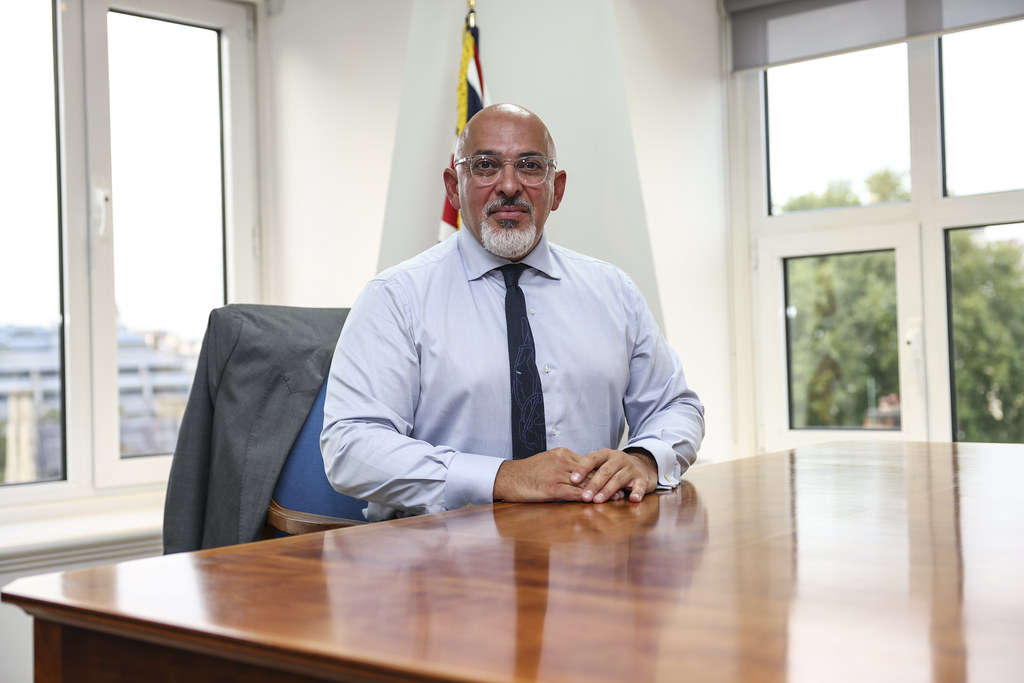What are DfE’s top 3 funding priorities for 2022?

@EducationGovUK announce £615 million skills boost to support more people into jobs
The Chancellor announced in the Budget that an extra £1.6 billion would be invested in 16-19 education and training by 2024-25 compared with 2021-22 financial year.
Today (17 Dec) the Department for Education has published details of how £615 million of that funding will be invested next year:
The Department for Education has confirmed that students studying courses including T Levels will benefit from an extra £615 million cash boost in the 2022-23 financial year so every young person can continue to access the training they need to succeed. The cash injection will see per student funding boosted by over 8%.
This includes funding for an extra 40 hours of education per student to help them catch up on lost learning due to the pandemic.
On top of this, funding for high value courses – those that deliver the skills that the country needs and which can lead to higher wages for students – and high cost courses including building and construction will also be increased.

Education Secretary Nadhim Zahawi said:
“Ensuring everyone is given the opportunity to reach their full potential, no matter their age or life stage, is a vital part of our mission to level up this country.
“These measures, including our new short courses and nine new Institutes of Technology, will boost access to more high-quality and flexible education and training – giving people the chance to learn at a pace that is right for them, while ensuring we have the skilled workforce needed to boost our economy.”
Sector Reaction:

Responding to the announcement from the Department for Education on new IoTs, short courses and 16-18 funding, Chief Executive of Association of Colleges, David Hughes said:
“This welcome announcement of more investment in post-16 education follows on from the recent spending review which announced the first planned increases in college funding for 15 years. The increase in 16 to 18 funding is a good start in putting back the money lost in cuts and absorbed by inflation over the last decade and it should result in most colleges seeing an increase to their income. Much of it will be used to pay for a long-overdue increase in student hours. However, the funding increases come at a time when inflation is rising, particularly costs like energy. The recent IFS report showed that even after the planned three years of increases in 16 to 18 investment, the funding per student in 2024/25 will still be 10% lower than in 2010.
“The different capital investments – in Institutes of Technology and T Levels – will help provide world-class facilities for students in more colleges and enhance the student experience, preparing them even better for the modern workplace.
“After a decade of neglect, this announcement feels like a significant turning point and shows a government which is starting to recognise the need to invest in colleges, in post-16 education and training. For young people and adults who need education and skills which lead to better lives and economic prosperity.”

Jane Hickie, Chief Executive, Association of Employment and Learning Providers (AELP) comments:
“While additional investment into post-16 education and training is always good news, it is disappointing that the DfE continue to show huge institutional bias. Independent training providers deliver a wide range of post-16 provision and have unrivalled links with businesses of all sizes.
“Yet once again, they are unable to directly access this crucial funding. This lack of parity in treatment must be addressed as a matter of urgency. The skills system should be about learners and employers- not favoured institutions.”

David Gallagher, Chief Executive of NCFE said:
“The additional investment in 16-18 education is a much-needed boost, particularly in the face of rising inflation.
“The cash injection for T Levels will be crucial to delivering a world-class learning experience. To make T Levels a success we need to make sure there is a high standard of facilities and equipment available so learners can acquire the skills they need for the workplace. To be truly impactful this investment must be matched in future by greater investment in our educators.
“While we welcome the broad direction of travel on short courses, we would urge the Government to ensure a fully transparent process is in place. We need to harness the expertise of awarding organisations and industry experts to ensure that the highest quality learning experiences are delivered to provide learners with the credentials and currency they need to have value in the labour market.
“The proposed Lifelong loans entitlement is positive, but the associated debt will continue to disincentivise access for those who need it most. More must also be done to support people to retrain at level 3.
“Overall this is an encouraging early step-forward from the Department for Education. We hope to see continuing investment in 2022.”

Toby Perkins MP , Labour’s Shadow Further Education and Skills Minister , responding to the Government’s announcement of short training courses, said:
“Families are feeling the brunt of the Conservatives’ failure to deliver the skills and training opportunities our country needs, with shelves left empty, petrol pumps running dry and prices rising.
“Under this government, as vacancies in key sectors from health to wholesale have risen, training opportunities have disappeared. The Government needs a plan for skills that amounts to more than quick slogans or sticking plasters.
“Labour’s job’s promise would deliver the thousands of new apprenticeship opportunities that young people and our economy need.”
1. Institutes of Technology
A further nine Institutes of Technology have been announced today (Friday, 17 December) in locations including Blackpool, Derby, Salford and Essex, bringing the total to 21 across the country and delivering on the government’s manifesto commitment.
Institutes of Technology are unique collaborations between employers, colleges and universities that specialise in offering high-quality Higher Technical Education and training in subjects such as advanced manufacturing, digital and cyber security, aerospace and healthcare, which will deliver the skilled workforce businesses need and get more people into jobs closer to home.
There are 12 Institutes of Technology already up and running in areas including the West Midlands, West of England, Swindon and Wiltshire and Yorkshire and the Humber.
2. T Levels
Young people starting new T Level qualifications in 2023 in subjects such as Media, Broadcast and Production, Animal Care and Management and Catering are also set to benefit from over £150 million investment to upgrade teaching facilities and equipment.
From today, colleges, schools and sixth forms delivering T Levels can bid for a share of over £150 million – from the fourth wave of the T Level Capital Fund. The funding will be used to refurbish buildings and facilities, including creating training kitchens for catering students, studios for media students, and facilities for agricultural courses such as trainee milking parlours or labs to learn about land science in readiness for students starting courses in September 2023.
A further 12 projects totalling £16 million supported by wave 3 of the T Level Capital Fund have also been announced today, bringing the total to 77 projects that will provide new buildings and facilities for students studying T Levels from September 2022.
Successful projects include Gateway Sixth Form College in Leicester, awarded funding to create a dedicated health suite and a central learning resource space for students, and UTC South Durham, awarded funding to extend their engineering hall, to include two engineering workshops and an IT suite.
T Levels – co-created with over 250 employers including Fujitsu and Amazon – are equivalent to three A levels and uniquely combine classroom study with industry placements, so students gain the skills businesses need allowing them to go straight into the workplace, onto an apprenticeship or further study.
The T Level Capital fund will be open to all T Level providers offering all available T Levels. Part of the funding will also be made available to pay for specialist kit, such as surveying equipment and engineering tools, to make sure students have access to the industry standard devices they need to be ready for the workplace.
3. Short Courses
Adults and young people across the country will benefit from more high-quality and flexible education and training – levelling up opportunities and supporting more people into higher skilled, higher wage jobs.
People looking to upskill or retrain will have access to more than 100 short courses starting from September next year, lasting between six weeks to a year, supporting them to space out their studies and learn at a pace that works for them. More than 20 universities and colleges will offer the courses in subjects where there are skills shortages, such as Digital, Net Zero, Education, STEM and Healthcare – offering an alternative to studying a traditional three-year degree.
£150 million has been awarded to 100 colleges and universities to upgrade their facilities and equipment to boost access to higher technical training and flexible courses in key subjects, such as engineering, healthcare and science, that will help tackle regional skills gaps and level up local economies.
Colleges including Weston College, Somerset, and universities including University of Wolverhampton and Keele will offer the short courses, which will help people to fit training around their lives while helping to plug local skills gaps.
Student finance will also be available to students taking the courses, marking the next step in the development of the government’s Lifelong Loan Entitlement, which, from 2025, will provide individuals with a loan entitlement to the equivalent of four years of post-18 education they can use flexibly over their lifetime.
Funding has been awarded to Nottingham College to create a new Laboratory Science and Innovation Centre to expand their training offer, along with Roehampton University that will deliver a new Healthcare hub to support more higher technical, apprenticeships and flexible modular training. These are just two of the 100 successful further and higher education providers that will lead projects to modernise facilities as part of the Office for Students’ Strategic Priorities Grant.
The Higher Education Short Course trial will provide access to tuition fee loans for certain short courses at Levels 4-6. The short courses eligible for loan funding will be delivered by providers who have been successful in the Office for Students led Challenge Competition. The successful providers will receive grant funding to support the development of the Short Courses.
The trial will help build and test towards the Lifelong Loan Entitlement from 2025 and will allow students to study and build up the skills they need more flexibly. The OfS Strategic Priorities Grant 21/22 capital funding outcomes follows a consultation the OFS held during March and April 2021, the outcomes of which were set out July 2021.












Responses